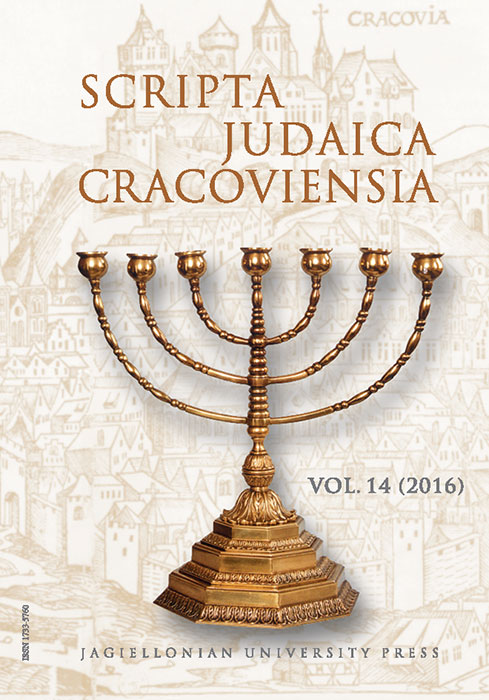Jewish Barristers and the Jewish Bar as Described by the Anti-Semitic Weekly Rola
Jewish Barristers and the Jewish Bar as Described by the Anti-Semitic Weekly Rola
Author(s): Agnieszka FriedrichSubject(s): Social history, History of Judaism
Published by: Wydawnictwo Uniwersytetu Jagiellońskiego
Keywords: Jewish barrister; anti-semitism; Rola weekly
Summary/Abstract: In the early 1880s, when Russian politics took a strong anti-Semitic turn, a campaign was initiated in order to limit the number of Jews in the bar. The anti-Semitic weekly Rola took active part in this campaign. Rola claimed that a once respected profession had lost its social prestige because of the inflow of Jewish members into the bar, to which they had introduced the logic of financial profit. Its journalists condemned the moral relativism of Jewish lawyers, who had begun to “infect” Polish social life when they gradually took over public offices. This was facilitated by the professional and social links between Jewish and Polish barristers, who together formed a “Jewish-atheist clique.” According to Rola, the Polish bar was to be healed by elimination of unhealthy competition through the limitation of the general number of licensed barristers, introduction of official limits on the number of Jews in the barrister profession, and outlawing of the so-called private barristers with no formal legal education, whose members were mostly Jewish. When in 1889 the numerus clausus was officially introduced into the bar, Rola ceased to be interested in this topic. This sudden change of direction invites a suspicion that the weekly could have been inspired from the outside, while its activities were part of the persecution campaign of Jewish barristers organized by the Russian authorities.
Journal: Scripta Judaica Cracoviensia
- Issue Year: 2016
- Issue No: 14
- Page Range: 85-98
- Page Count: 14
- Language: English

